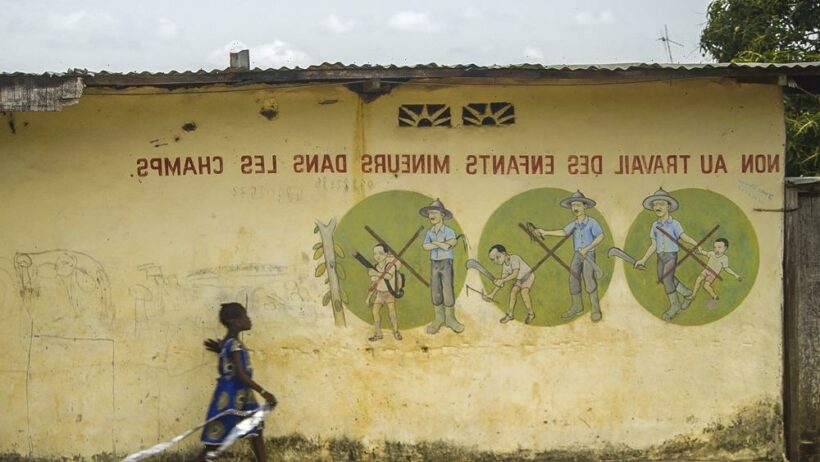After watching Danish director Miki Mistrati’s “The Chocolate War,” which is having its world premiere at CPH:DOX this week, chances are you will think twice before buying your next chocolate bar.
That’s what happened to Mistrati back in the early 2000s when he went shopping in his local supermarket. Spoilt for choice, he looked at all the different bars of chocolate and only found one out of seven that bore the Fair Trade mark. “So I began to wonder: if one is Fair Trade, what about the other six chocolate bars?,” he says.
That marked the start of his journey to investigate child slavery in the cocoa plantations of Ivory Coast and Ghana, the two biggest cocoa producers in the world. It started with “The Dark Side of Chocolate” released in 2009 and was followed by “Shady Chocolate” in 2012. “The Chocolate War” is the third installment.
Its main protagonist is prominent American human rights lawyer Terry Collingsworth, who has dedicated his life to fighting some of the world’s biggest corporations. The film follows him as he travels to Africa to gather evidence to try and get Nestlé and Cargill convicted of complicity in child slavery in the U.S. Supreme Court.
“This third film has basically nothing to do with the first two in terms of the way it’s done: in the first two I was the lead character, I carried out the investigation, whereas this is a film without any voice-over: I wanted to make Terry into a Jason Bourne-like character and give the doc a thriller feel,” he explains to Variety. Mistrati called on Norwegian composer Marius Christiansen to produce the film’s dramatic score.
During his trip to Ivory Coast in late 2019, Collingsworth and two research students from Berkeley University paid an unannounced visit to a center for the rehabilitation of enslaved children supported by the government and NGOs. In one scene, the team is taken on a tour of the center, its library and its dormitory, which appear eerily empty and tidy. Collingsworth makes it clear that he believes the whole place is an empty shell.

When they asked why no children were to be seen in the center, Mistrati said they were given a succession of different answers, ranging from claims the children were in the TV room to the assertion they were sleeping in the dormitory – which is seen to be empty in the footage.
In a recent podcast on the Danish public service radio’s news show “Genstart,” the equivalent of The New York Times’ “The Daily,” Mistrati opened up about a letter he says he received from lawyers representing Ivory Coast’s First Lady, Dominique Ouattara, who presides the foundation that built the center. They ask the film’s production company, Made in Copenhagen, to hand over the entire sequence shot in the center or face defamation charges.
“Of course we won’t hand over our film,” exclaims Mistrati. Asked what the next step is, he says: “I want to get the film out on the U.S. market. The next step is for Terry to get them convicted, which is the only language they understand: if they are convicted, the billions of dollars they will have to pay will stop them right away,” he says.
Mistrati, who grew up in a state-owned apartment in Copenhagen, says he sees himself in Collingsworth and has made it his life mission to bring about change and be the voice of those who are treated unfairly, in particular children.
His upcoming projects include a doc on children’s rights. The director is also working on another case with Collingsworth about the controversial extraction of cobalt in the Democratic Republic of Congo, as well as a doc with the children of ISIS fighters.
Nominated for a F:act Award, “The Chocolate War” has its world premiere at CPH:DOX on March 23. It has been sold widely in territories across Scandinavia and beyond by DR Sales, which has two other films at CPH:DOX: “All That Remains to Be Seen” by Julie Bezerra Madsen in the Nordic:Dox and Politiken:Dox categories, and “Terroir to Table” by Rasmus Dinesen in the Danish:Dox Section.
Source: Read Full Article
